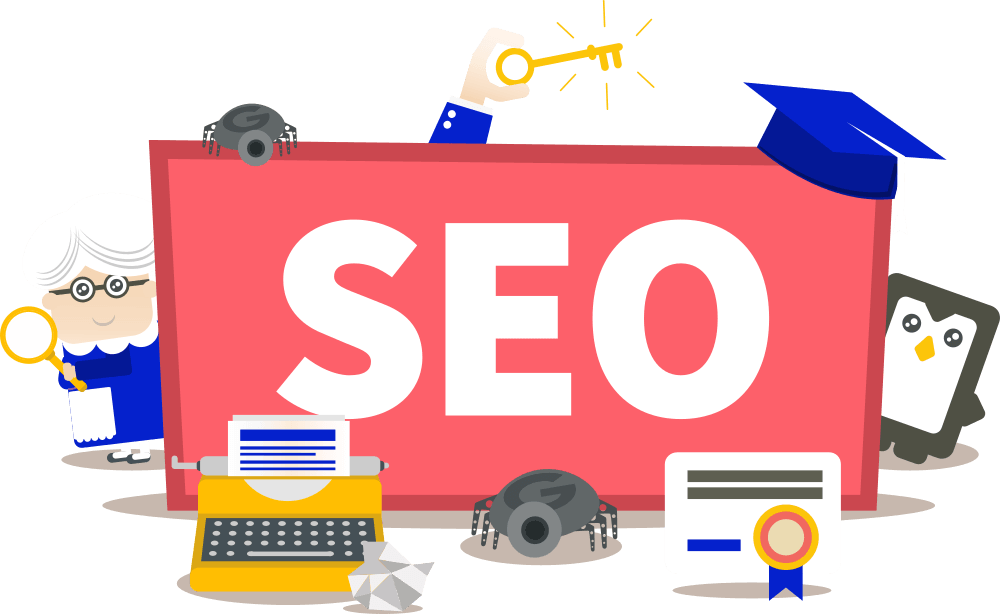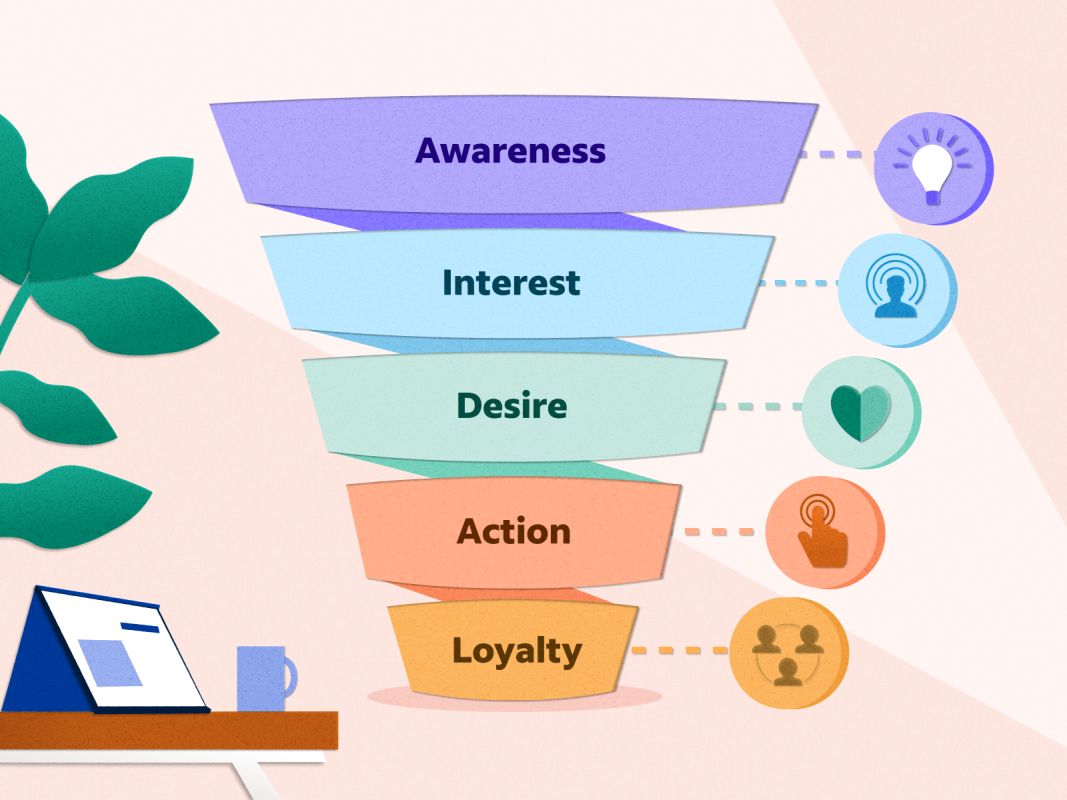In today’s highly competitive digital landscape, having a strong online presence is critical for businesses to succeed. Search engine optimization (SEO) is a critical component of any successful digital marketing strategy. SEO involves optimizing your website to appear high in search engine results pages (SERPs) for specific keywords and phrases relevant to your business. This article will explore why SEO is important for businesses, and how it can help you boost website traffic, generate leads, and grow your brand’s online presence. Additionally, we’ll cover some best practices for implementing an effective SEO strategy and measuring its success.
What is SEO and why does it matter?
Search Engine Optimization, or SEO, is the process of improving the visibility and ranking of a website in search engine results pages. This is done through a series of techniques and strategies that help search engines understand the content of a website and determine its relevance to a user’s search query.
SEO matters because it can help businesses gain more visibility and attract more organic traffic to their website. By appearing higher in search engine rankings, businesses have a greater chance of being discovered by potential customers who are actively searching for their products or services. This can ultimately lead to more website traffic, increased brand exposure, and higher conversion rates.
Understanding SEO
SEO is a complex and ever-evolving field that involves a number of different elements, including keyword research, on-page optimization, link building, and content creation. Effective SEO requires a deep understanding of how search engines work, as well as a comprehensive understanding of the target audience and the types of content they are looking for.
The importance of SEO for businesses
In today’s digital age, having a strong online presence is essential for businesses of all sizes. SEO is a critical component of this, as it can help businesses achieve greater visibility and reach their target audience more effectively. By investing in SEO, businesses can improve their website’s search engine rankings, attract more organic traffic, and ultimately increase their revenue and profitability.
SEO boosts website traffic and brand exposure
How SEO drives traffic to your website
SEO helps to drive traffic to a website by improving its visibility in search engine results pages. By optimizing a website’s content and structure, businesses can increase their chances of appearing at the top of relevant search results, which can drive more organic traffic to their site.
Ways SEO improves your brand’s online presence
SEO can also improve a brand’s online presence by helping to increase its visibility and authority in search engine results pages. This can help businesses establish themselves as thought leaders in their industry and gain more exposure among their target audience. Additionally, by optimizing their website for search, businesses can create a more user-friendly and engaging experience for their customers, which can help to improve brand loyalty and customer retention.
How SEO can improve user experience and website usability
The role of SEO in enhancing website usability
SEO and website usability are closely related, as both are focused on providing a positive experience for users. By optimizing a website’s content and structure for search, businesses can also improve its usability and make it easier for users to find the information they are looking for. This can include things like improving page load speeds, simplifying navigation, and optimizing for mobile devices.
Why a good user experience is important for SEO
A good user experience is essential for SEO, as search engines prioritize websites that are user-friendly and provide relevant, high-quality content. By creating a positive user experience, businesses can improve their website’s search engine rankings and attract more organic traffic. Additionally, a good user experience can help to improve customer satisfaction and loyalty, which can ultimately lead to higher conversion rates.
The impact of SEO on lead generation and conversions
How SEO generates leads for businesses
SEO can help businesses generate leads by attracting more organic traffic to their website. By optimizing their website for search, businesses can increase their visibility and reach more potential customers who are actively searching for their products or services. This can help to generate more leads and ultimately increase sales and revenue.
The relationship between SEO and conversions
SEO and conversions are closely linked, as a well-optimized website can help to improve the customer journey and make it easier for users to convert. By providing relevant, high-quality content and optimizing for user experience, businesses can create a more engaging and persuasive website that encourages users to take action. This can result in higher conversion rates and ultimately help businesses achieve their revenue goals.
SEO as a cost-effective marketing strategy
In today’s digital age, businesses cannot afford to ignore the importance of search engine optimization (SEO). SEO is a cost-effective marketing strategy that aims to improve a website’s visibility on search engines like Google, Bing, and Yahoo. By optimizing your website and content for relevant keywords, your website can rank higher in search engine results pages (SERPs), making it easier for potential customers to find you.
Why SEO is a better investment than traditional advertising
Unlike traditional advertising methods like TV, radio, or print ads, SEO has a much lower cost per acquisition. With SEO, you are targeting people who are already searching for products or services similar to yours. This means you are more likely to attract high-quality leads that are more likely to convert into paying customers. Moreover, SEO is a long-term investment that continues to pay dividends for months or even years after the initial optimization.
The long-term benefits of SEO
One of the biggest advantages of SEO is its long-term benefits. Once your website starts ranking higher, it becomes more visible to potential customers, which can lead to a steady stream of organic traffic. This traffic is more likely to convert into sales because it is already interested in what you have to offer. Moreover, as your website earns more links and engages with customers through social media, it becomes more authoritative and trustworthy, which can further improve your rankings and attract even more traffic.
The role of SEO in staying ahead of the competition
As more and more businesses move online, competition in the digital space has become fierce. In this crowded marketplace, it is essential to have a strong online presence to stand out and attract customers. This is where SEO comes in.
How SEO gives businesses a competitive edge
SEO can help businesses differentiate themselves from their competitors by improving their visibility on search engines. By optimizing their website and content for relevant keywords, businesses can attract more traffic and generate more leads than their competitors. Moreover, businesses that invest in SEO are more likely to earn high-quality backlinks and engage with customers through social media, which can further improve their visibility and authority.
Why not investing in SEO can put you behind your competitors
On the other hand, businesses that neglect SEO risk falling behind their competitors. As more and more customers turn to search engines to find products and services, businesses that don’t invest in SEO risk becoming invisible to customers and losing market share. Moreover, businesses that fail to keep up with SEO best practices risk being penalized by search engines, which can further hurt their visibility and reputation.
SEO best practices and how to implement them
Implementing SEO best practices involves optimizing both on-page and off-page factors.
On-page optimization techniques
On-page optimization involves optimizing the content and structure of your website for search engines. This includes optimizing title tags, meta descriptions, header tags, and internal linking, as well as ensuring the website is mobile responsive and has fast load times.
Off-page optimization techniques
Off-page optimization involves building high-quality backlinks to your website, which tells search engines that your website is authoritative and trustworthy. This can be achieved through guest posting, influencer outreach, and other link building strategies.
Measuring the success of SEO campaigns
To ensure the success of your SEO campaigns, it’s important to track and measure key performance indicators (KPIs) using analytics tools like Google Analytics.
Key performance indicators for SEO
Some important KPIs for SEO include organic traffic, keyword rankings, conversion rates, and bounce rates. By monitoring these KPIs, you can identify areas where your website and content can be improved.
Using analytics to track and measure SEO success
Analytics tools like Google Analytics can provide insights into how users are finding and interacting with your website. By analyzing this data, you can identify which keywords and content are driving the most traffic and conversions, and adjust your SEO strategy accordingly.In summary, SEO is essential for businesses to succeed in the digital age. With the help of an effective SEO strategy, you can increase website traffic, improve brand exposure, and generate leads and conversions. By following best practices and measuring the success of your SEO campaigns, you can stay ahead of your competitors and achieve long-term growth.
Frequently Asked Questions (FAQ)
Why is SEO important for businesses?
SEO is important for businesses because it helps them improve their online presence, reach a wider audience, and generate leads and conversions. By optimizing your website for search engines, you can increase your visibility in search results, which can ultimately lead to more traffic and revenue.
What are some best practices for implementing an effective SEO strategy?
Some best practices for implementing an effective SEO strategy include conducting thorough keyword research, optimizing your website for both on-page and off-page factors, creating high-quality content, and regularly measuring and analyzing your results.
How long does it take to see results from SEO?
The time it takes to see results from SEO can vary depending on a number of factors, such as the competitiveness of your industry, the quality of your website content, and the effectiveness of your SEO strategy. Generally, it can take anywhere from several weeks to several months to see significant improvements in search engine rankings and website traffic.
Can I do SEO myself, or should I hire an expert?
While it is possible to do SEO yourself, it can be a complex and time-consuming process that requires a deep understanding of search engine algorithms and best practices. Hiring an experienced SEO expert can help ensure that your SEO strategy is effective and optimized for your specific business goals and target audience.




